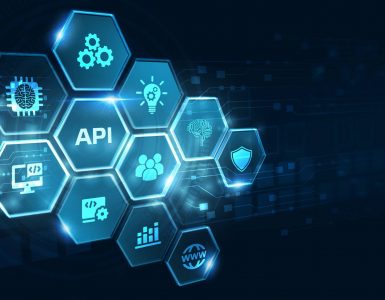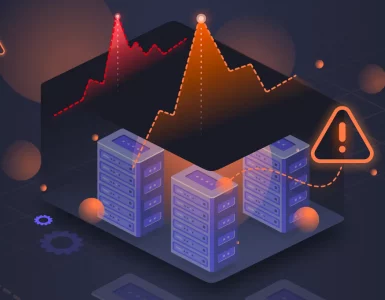In the words of GitHub CEO Thomas Dohmke, “AI and software development are now inextricably linked for the rest of our lives.” and this has been evident since GitHub launched Copilot on October 29, 2021.
GitHub Copilot is an AI-powered coding assistant that suggests lines or blocks of code as developers type, improving productivity and code quality. Undoubtedly, the AI wave has put it under the spotlight and it is set to disrupt DevOps roles in 2023.
Experts at Talent500 have curated this article to throw light on the impact of GitHub’s AI tools on your DevOps job and what you can do to build up on it. Let’s get started:
#1 Increased Efficiency
AI-powered tools like GitHub Copilot are significantly increasing the efficiency of software development by providing suggestions and automating repetitive tasks, thus reducing the time spent on coding.
According to poll data released by Akvelon, most people said their writing speed went up by up to 25%, and almost 14% said it went up even more, by up to 50%. The majority of study respondents (81%) said that their productivity increased while using GitHub Copilot for developing and testing. According to the survey findings, the average time savings for performing activities using GitHub Copilot was 16%.
#2 Improved Code Quality
AI tools can analyze vast amounts of code and provide suggestions for best practices, thus improving the overall quality of the code.
Building on the pioneering efforts of OpenAI and Microsoft with ChatGPT and the revamped Bing, GitHub introduces Copilot Chat. This feature brings a developer-centric chat interface right into the editor, seamlessly integrating with VS Code and Visual Studio. But it’s more than just a chat window – it’s a game-changer.
Copilot X, the latest iteration, is astutely aware of the code a developer is working on and the error messages that pop up. It’s deeply ingrained within the Integrated Development Environment (IDE), offering an unparalleled level of interaction and assistance. This integration not only streamlines the coding process but also fosters a more intuitive and efficient development environment.
#3 Reduced Errors
GitHub’s AI can predict potential errors in the code and provide solutions before they become a problem, reducing the time spent on debugging and error correction. Copilot will notify developers of insufficient testing for a pull request and propose potential tests based on the requirements of the project.

(Credits: GitHub)
Since DevOps engineers can accommodate the suggestions in real-time, it is likely to help junior DevOps engineers limit errors while for more senior developers, this can be frustrating, at least while Copilot is in its initial phases. This is because they might need to review code that they didn’t write, putting them under enormous decision-making stress without any tangible incentives.
#4 Enhanced Collaboration
GitHub’s AI features have made it easier for developers to collaborate on projects, with tools that can understand and predict the needs of the team. The company is currently experimenting with Copilot’s ability to suggest sentences and paragraphs during the creation of pull requests, streamlining the process.
Copilot X uses OpenAI’s GPT-4 model to create pull requests, improving code. Administrators and repository owners may install a GitHub app to see this progress. Copilot auto-populates pull request descriptions with AI-powered tags based on updated code. DevOps engineers can edit the recommended descriptions, giving them unparalleled control and ease.
GitHub also launched Copilot for documents. This experimental feature provides AI-generated documentation replies for languages, frameworks, and technologies through a chat interface. React, Azure Docs, and MDN docs are first. The long-term goal is to provide ChatGPT-like capabilities to any organization’s repositories and internal documentation so developers can ask questions and receive immediate, correct answers. This can help teams be on the same page, learn about the aspects of code that they didn’t work on, and have clear communication both internally and externally.
#5 Faster Software Releases
With AI assisting in coding and debugging, software can be developed and released much faster, leading to quicker updates and more responsive development cycles. GitHub is not just revolutionizing the editor and pull request interfaces, but also enhancing the terminal experience, a space where developers invest substantial time. In a bid to expedite processes and conserve developers’ efforts, GitHub is unveiling Copilot CLI.
It is capable of crafting commands and loops, and even managing elusive find flags to fulfil queries. It essentially translates natural language into terminal commands, bridging the gap between human thought and machine execution. Developers keen on harnessing the power of this tool can join the waitlist, positioning themselves at the forefront of this technological breakthrough.
#6 Automation of Routine Tasks
AI can automate routine tasks such as code formatting and simple function writing, freeing up developers to focus on more complex and creative aspects of software development.
GitHub Copilot X exemplifies the transformative power of AI in the software development landscape. Minimizing boilerplate and manual chores will empower developers to delve into more intricate and groundbreaking tasks. This surge in productivity enables developers to focus on the grand scheme of things, sparking innovation and propelling the pace of technological advancement.
#7 Increased Adoption of DevOps Practices
The ease and efficiency provided by AI tools will lead to increased adoption of DevOps practices, with a GitHub survey finding that 92% of developers are now using AI tools.
Chirag Dekate, a Vice President and expert at Gartner, says that generative AI features like Duet AI will lead to more people using cloud technology. Dekate said that a scarcity of cloud engineering skill sets continues to stymie enterprise cloud adoption and, more importantly, value creation from the cloud. Duet AI uses generative AI to tackle this challenge head-on.
He further added, with Duet AI, enterprises should expect faster value creation in Google Cloud and significant improvement in cloud team productivity, including cost reduction and improved agility in value delivery.
Wrap Up
One number that hasn’t changed is that GitHub still says that, based on its analysis of a sample of almost one million users, developers accept just under 30% of code suggestions — and the longer they use it, the higher their acceptance rate, with developers accepting closer to 35% of suggestions after six months of use. While AI developer productivity benefits could boost global GDP by over $1.5 trillion, each missing skilled developer will account for $100,000 in GDP loss.

(Credits: GitHub)
Among other notable developments, AI can help identify potential security vulnerabilities in the code, helping to improve the security of the software. AI tools like GitHub Copilot learn from every interaction, constantly improving their suggestions and becoming more valuable to the development process over time. Also, its ability to identify security vulnerabilities is creating a trend towards integrating security practices into the DevOps lifecycle, leading to the rise of DevSecOps.
Indeed an exciting time for DevOps engineers! Exploring a new DevOps role that will put you at the forefront of the AI revolution? Join Talent500 now!






Add comment